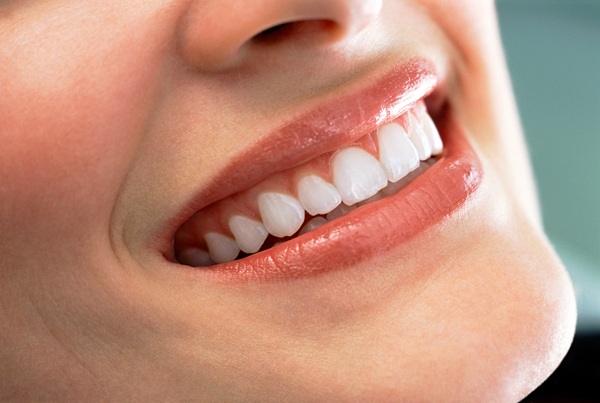Are you familiar with that relentless, throbbing pain that seems to have taken up residence in the back of your mouth? If you are, chances are you’re on a first-name basis with your wisdom teeth. These late-blooming molars may be called “wisdom teeth,” but the pain they bring doesn’t feel particularly wise. Join the club of those who’ve endured the persistent ache and find out what to expect when bidding farewell to these troublemakers.
Why Do You Need to Remove Wisdom Teeth?
For some, welcoming wisdom teeth is like having guests who effortlessly find their spot at the table—no fuss, no drama. These molars simply show up, often unnoticed, bringing no trouble to the oral party. Yet, for others, the wisdom tooth narrative takes a different turn. These molars can be a tad stubborn, necessitating their removal.
As such, wisdom tooth extraction is often recommended in the following scenarios:
- If your jaw lacks sufficient space for the proper growth of wisdom teeth, it can lead to complications, making extraction a viable solution.
- Even without specific dental issues, the eruption process itself can cause discomfort. Wisdom teeth removal can alleviate this pain and enhance overall comfort.
- Wisdom teeth, especially if partially erupted, can be challenging to clean properly, increasing the risk of cavities and gum disease. Removal helps mitigate these risks.
- Wisdom teeth can contribute to overcrowding, potentially impacting neighbouring teeth and affecting overall dental alignment.
- If you are undergoing orthodontic treatment, you may need to have your wisdom teeth removed to maintain the results of your braces or aligners.
- In some cases, removal is considered a preventive measure even before issues arise, particularly if there’s a high likelihood of complications based on X-rays and your oral anatomy.
- Partially erupted or impacted wisdom teeth create spaces that are difficult to clean, increasing the risk of bacterial growth and infections. Removal mitigates this risk, promoting oral health.
- In rare cases, wisdom teeth can develop cysts, causing damage to surrounding teeth and bone. Removal is a preventive measure against cyst formation.
The extraction process serves as a preventive measure to avoid ongoing or future dental problems, ensuring the overall health of the oral cavity.
Related: A Quick Guide to Impacted Wisdom Teeth Pain Relief
Symptoms of Wisdom Teeth Infection
If you’re grappling with any of the following symptoms, your wisdom tooth might be sending distress signals, hinting at a potential infection:
Swelling
Swelling in the back of your mouth points directly to wisdom tooth complications. When these molars emerge or become impacted, the surrounding gum tissue can undergo inflammation. It’s a visual cue that your wisdom teeth might be causing more than just a little discomfort; they could be triggering a full-scale response that needs addressing.
Pain
Persistent, localised pain at the back of your mouth is a telltale sign of wisdom tooth issues. From a dull ache to sharp pains, discomfort often signals the need for attention to your third molars.
Redness
The redness in the gum tissue around your wisdom tooth is a sign that your gums are irritated, likely due to the emergence or impaction of your wisdom teeth. The redness is a visible confirmation that these molars are making their presence felt.
Difficulty in Opening Mouth
Difficulty in fully opening your mouth can be traced back to problematic wisdom teeth. Impacted or infected molars can contribute to jaw stiffness, restricting your normal range of motion.
Bad Taste or Breath
An unpleasant taste or persistent bad breath may signify an infected wisdom tooth. Bacterial growth around the affected area can lead to foul odours or tastes that are specific to the troublesome tooth.
If you identify any of the above symptoms, seeking advice from your dentist is advisable. They will perform a careful examination, including dental X-rays, to assess the condition of your wisdom teeth. Based on the findings, your dentist will provide tailored advice, which may involve monitoring the situation, prescribing medications for temporary relief, or recommending wisdom tooth extraction if necessary. Early intervention and proper guidance can help address issues promptly, ensuring the best course of action for your oral health.
What is The Right Time to Remove a Wisdom Tooth?
Typically, dentists consider the following factors when determining the right time for wisdom tooth removal:
- If wisdom teeth cause pain and discomfort or show signs of impaction, removal is often recommended to prevent further complications.
- In some cases, dentists may suggest preemptive removal even before symptoms appear to prevent potential issues.
- Wisdom tooth removal may align with orthodontic treatment plans, ensuring they don’t disrupt the alignment achieved through braces or other orthodontic interventions.
- Regular dental checkups help monitor wisdom teeth development. Dentists may recommend removal based on X-rays, symptoms, and the overall health of your teeth and gums.
Also read our blog: Debunking 5 Common Myths About Wisdom Teeth Extraction
Preparation for Wisdom Teeth Removal
Preparing for wisdom teeth removal involves a thoughtful and systematic approach. It all begins with a comprehensive consultation with your dentist, where a detailed oral examination and X-rays are conducted to assess the position of your wisdom teeth and identify potential complications. This initial step is critical in tailoring the approach to your specific needs. During this consultation, your dentist will also discuss anaesthesia options, ensuring your comfort during the procedure.
Your dentist will brief you on post-operative care, providing insights into dietary restrictions, pain management strategies, and maintaining proper oral hygiene during the recovery phase. Practical considerations, such as arranging transportation (especially if opting for general anaesthesia), and preparing your home with soft foods, ice packs, and prescribed medications, contribute to a smoother recovery experience.
Before the day of surgery, following fasting instructions and transparently communicating your medical history with your dentist is paramount. This strategic preparation not only ensures a seamlessly executed procedure but also lays the foundation for a comfortable and speedy recovery at home.
The Procedure of Wisdom Teeth Removal
- Wisdom teeth removal procedure generally begins with the administration of anaesthesia, ensuring a pain-free experience. Depending on the complexity of the extraction and individual preferences, your dentist may use local anaesthesia, sedation, or general anaesthesia.
- Once the anaesthesia takes effect, the dentist makes an incision in the gum tissue covering the wisdom tooth. In some cases, the tooth may be divided into sections for easier removal.
- Using specialised instruments, the dentist carefully extracts the wisdom tooth. The technique varies based on factors like impaction and tooth position.
- In some cases, stitches may be necessary to close the incision and facilitate proper healing. The type of stitches and whether they are absorbable or need removal will be discussed by your dentist.
Following the procedure, your dentist will provide detailed post-operative instructions, covering topics like pain management, dietary restrictions, and oral hygiene practices during the recovery period. Periodic checkups with your dentist allow them to monitor the healing process, address any concerns, and ensure a smooth recovery.
What to Expect After Wisdom Teeth Removal?
Wisdom teeth removal is a common dental procedure, and understanding what to expect during the recovery phase is essential for a smooth healing process. In the days following the extraction, you may experience the following symptoms, but rest assured, these are a natural part of the healing journey and should subside with proper care and attention:
Pain
It’s common to experience some degree of pain after wisdom teeth removal. Your dentist may recommend over-the-counter pain relievers or prescribe medications to alleviate discomfort. Following the prescribed dosage and schedule is essential for effective pain management.
Swelling
Swelling around the jaw and cheeks is a normal response to the extraction. Applying ice packs intermittently during the first 24 hours can help minimise swelling. Your dentist may provide guidelines on the duration and frequency of ice pack application.
Bleeding
Some bleeding is expected initially. Biting on a gauze pad placed over the extraction site for about 30 minutes can control bleeding and help promote clot formation. However, if bleeding persists beyond this timeframe, it’s imperative to seek immediate consultation with your dentist. Timely communication ensures prompt attention and appropriate measures to address any concerns, fostering a smoother recovery process.
Stitches
If stitches were used to close the incision, your dentist will advise on their type and whether they are absorbable or need removal. Following any post-operative care related to stitches is important for proper healing.
Nausea
Nausea or an upset stomach can be a side effect of anaesthesia or medications. Maintaining a light diet and staying hydrated can help alleviate nausea. If you experience severe or prolonged symptoms, or if you have any concerns during the recovery period, promptly reach out to your dentist for guidance and assistance.
Final Words
At Bellevue Hill Dental, we prioritise your oral health and overall well-being throughout the wisdom tooth removal process. Our thorough screening helps us identify potential risks, allowing us to tailor treatments that align with your specific needs and lifestyle preferences. We administer twilight sedation and localised anaesthesia for your comfort and peace of mind, ensuring a smooth and gentle oral surgery experience. To complement our dedication to your care, we also provide comprehensive pre and post-surgery instructions, guiding you towards a successful procedure and a speedy recovery.
Are you struggling with the challenges of troublesome wisdom teeth?
Book a consultation with us today.



